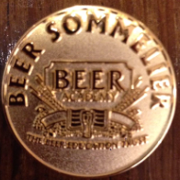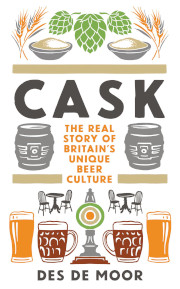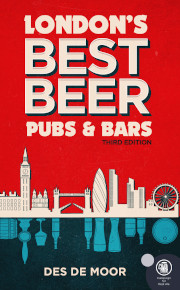“Anything but history, for history must be false.”
Robert Walpole (1676-1745)
Beer culture is a form of popular culture, and suffers similarly from a less than scrupulous approach to its history. Authoritative histories of high art, politics, economics and other worthier fields of human endeavour are written by academic historians from carefully researched primary sources under the discipline of peer review. In contrast, the history of beer, like that of, say, popular music or TV comedy, seems often to have been dreamed up by the marketing department and passed into folk knowledge through the medium of pub anecdote.
I’m often reminded of this when I read the work of genuine and meticulous researchers into the history of British beer and brewing, like Martyn Cornell and Ron Pattinson, heroically fighting a rearguard action against the many misconceptions around classic British beer styles like porter and India pale ale. But a similar problem afflicts the beer histories of other countries too.
For example, a fascinating piece by Raf Meert in the current issue of De Zytholoog, the magazine of Belgium’s beer consumer organisation Zythos, was prompted by the ‘200th anniversary’ of Lindemans, the lambic brewery in Vlezenbeek, Flemish Brabant, which was celebrated with some ballyhoo earlier this year. According to Meert’s researches, however, Lindemans’ official founding date of 1811 is 20 years too early.
The article quotes the standard account of the brewery’s origins, as given in the book Geuze en Kriek: de Champagne onder de Bieren (‘Geuze and Kriek: champagne among beers’) by respected Flemish beer writer Jef Van den Steen, generally considered one of the authoritative texts on lambic brewing.
Here the author states [writes Meert — my translation] that seven generations ago the Lindemans family ran a brewery at their farm, which was known then as it is today as the Hof te Kwadewegen. Brewing at the site was even older: in 1655, Jan Van Overstraeten was brewing beer there. The Van Overstraeten family established the brewing tradition at the Hof te Kwadewegen more than 150 years before Frans Lindemans, the bailiff of the New Land of Gaasbeek, married into that family in 1780. According to this account, he took over the business from his father-in-law in 1809.
In fact, says Meert, there were originally two breweries in Kwadewegen, then a small hamlet near Vlezenbeek. The larger was run by the Van Overstraeten family, the smaller, a completely different brewery, by another family with the name of Van Dorselaer. The current Lindemans site was formerly the property of the Van Dorselaers, not the Van Overstraetens. In 1795 the brewer’s daughter, Maria Anna Van Dorsealaer, married a man called Jacobus Vandersmissen, who eventually took over the tiny brewery. It came into the Lindemans family because Joost Frans Lindemans, the nephew of bailiff Peter Frans Lindemans but not a bailiff himself, married Maria Anna and Jacobus’s daughter, Josina Vandersmissen, in 1822. Joost Frans soon became the boss when his father-in-law died a few months later. He and his wife presided over a significant expansion of the business, eclipsing their competitors the Van Overstraetens, who are recorded as having ceased brewing by 1824. Counting back from the current incumbents to Joost Frans is only six generations, not seven.
Assuming Meert is right, the first question is, why is the established history so inaccurate? Presumably it simply hadn’t been thoroughly researched before, and Van den Steen simply went with the received wisdom, perhaps from family legend — though it would be odd if family legend implicated another family which turns out not to have any connection at all! But it’s also notable that the standard story, with only one rather than two inheritances through marriage and picturesque details like the brewing bailiff, is an easier and more appealing one to tell, particularly for someone churning out “creatives” for a marketing campaign or press release. And it’s all too common in the beer world that the author of a standard text simply takes this kind of stuff at face value.
The second question is, does it matter? Are the details of brewery inheritance in an obscure part of the Low Countries at the turn of the 19th century, before today’s Kingdom of Belgium had even been created, really that important compared to, say, understanding the reasons why Lindemans abandoned traditional lambic production in favour of sweetened fruit beers in the more recent past?
In my view, yes, it does very much matter. Heritage is a valuable asset in the world of brewing, and most breweries dating from before the resurgence of craft brewing are quick to boast of their lengthy pedigree. The authenticity thus sought is admittedly limited as a brewery’s history does not necessarily reflect on the way it operates today — many a family business has ruthlessly torn up the rule book — but history does help provide the context in which specific beers are appreciated, particularly if they come in a style as ancient and rare as lambic.
I doubt in this case there was an intent to deceive, and this was by no means the most egregious example of a contested brewing history. It’s common practice among German brewers, for example, to quote foundation dates going back to mediaeval times, though often the events commemorated turn out to be only very indirectly connected to the present day company and site. Still, however, when a major anniversary celebration ends up two decades early through a failure to check facts, the very commitment to heritage the event was intended to celebrate is exposed as embarassingly shallow.
More generally, the sloppy, anecdotal and unsubstantiated nature of much of what passes as beer history — yarns spun by advertising agencies, folk reminiscences parroted uncritically by beer writers — undermines the importance and significance of beer, brewing and beer culture and sets back the cause of its advocates. I admit I’m not immune for this sort of sloppiness — I’ve echoed the occasional beer style myth and relied far too much on brewery websites for background detail. Of course most beer writers and bloggers aren’t expert historians — our role is more to interpret for the benefit of an audience more interested in enjoying beer than understanding it — but we need to start paying more attention to the people who really are historians, and less to the appealing stories that emerge from the marketing departments.






Embarrassing, certainly, but perhaps not as embarrassing as Shepherd Neame, who hired a historian to write their official history for their “300th anniversary” in 1998 and discovered that they were at least 20 years too late, and the brewery was rather older than they had originally thought …
The worst one, however, was Younger’s of Edinburgh, which claimed a “foundation date” based on when William Younger I left home for Edinburgh aged 16: HE was never actually a brewer at all, it was his wife who went into the business after he died, inheriting her second husband’s brewery.
Isn’t it good, in the end, that Shepherd Neame put history straight?
Excellent article, as per usual.
If you don’t keep an eye on them, these cheeky devils will claim all sorts of things, viz Stella’s brilliant campaign from a couple of years ago where they were the first beer ever, or something.
[…] is an excellent post over at Des de Moor’s blog this morning entitled “Brewing’s Disputed Histories” in which he discusses an accepted inaccuracy about a point in the history of the Belgian […]
[…] not sure if Des de Moor and Alan McLeod were really writing about the importance of brewing history yesterday or something […]